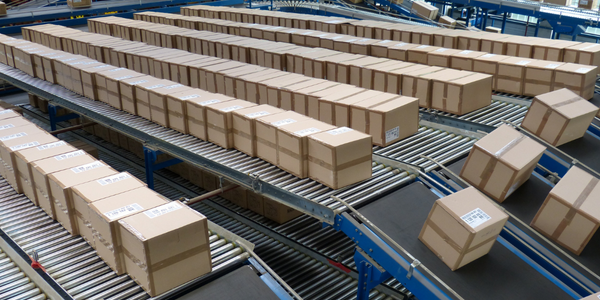公司规模
Large Corporate
地区
- Europe
国家
- Sweden
产品
- QlikView
技术栈
- QlikView
- Teradata
实施规模
- Enterprise-wide Deployment
影响指标
- Customer Satisfaction
- Productivity Improvements
- Cost Savings
技术
- 分析与建模 - 实时分析
适用功能
- 销售与市场营销
用例
- 质量预测分析
服务
- 软件设计与工程服务
关于客户
Swedbank is one of the largest financial institutions in Scandinavia and the Baltic states. The company dating to 1820 has strong roots in the Swedish savings banks tradition. Indeed Swedbank has cooperative agreements with 61 local, but still independent, Swedish savings banks. Today’s Swedbank (excluding Savings banks) serves approximately 4.3 million private and corporate customers in Sweden through 315 branches in six regions of Sweden. The Swedbank group employs 16,000 people across all geographies (around 8,000 in Sweden). It offers the familiar banking staples— savings accounts, credit cards, electronic banking, and loans — but also specialises in investment services, real estate brokerage, and life insurance. Swedbank home markets are Sweden, Latvia, Estonia, and Lithuania.
挑战
Swedbank, one of the largest financial institutions in Scandinavia and the Baltic states, needed to better support its 6,000+ branch employees and specialist head office and regionally-based marketing staff with customer-centric tools. The mission was to improve the sales support and give advisors an easy way to plan which customers to meet. The previous sales support tools were too complicated for most of the branch office users who were dependent on central and regional specialists from whom information could be ordered. The lack of system agility meant that opportunities were often missed. Swedbank saw this challenge as an opportunity for a paradigm shift. They saw potential for an entirely new user friendly and flexible system that put information, and thereby power, at everyone’s fingertips. They wanted to improve customer satisfaction and loyalty, and at the same time grow sales and revenue.
解决方案
Swedbank deployed QlikView to 5,000+ employees in less than six months. With QlikView Swedbank now analyses data on 4.3 million private and corporate customers by type of agreement and class of customer. The design and build process involved customising the QlikView Business Discovery platform for optimised self-service analysis specific to Swedbank’s business. Central sales specialists create bookmarks for Swedbank advisers to use in the branch offices including graphic illustrations of products or campaigns and a target group list of prospective customers. Advisers could then refine the bookmarks using local knowledge. Although data modelling took time to perfect due to the complexity of the data, development was completed in about a year. Swedbank rolled out its Customer Analysis Tool to the first 5,000 users in less than six months. They included 150 specialists or power users.
运营影响
数量效益

Case Study missing?
Start adding your own!
Register with your work email and create a new case study profile for your business.
相关案例.

Case Study
IoT Data Analytics Case Study - Packaging Films Manufacturer
The company manufactures packaging films on made to order or configure to order basis. Every order has a different set of requirements from the product characteristics perspective and hence requires machine’s settings to be adjusted accordingly. If the film quality does not meet the required standards, the degraded quality impacts customer delivery causes customer dissatisfaction and results in lower margins. The biggest challenge was to identify the real root cause and devise a remedy for that.

Case Study
Prevent Process Inefficiencies with Automated Root Cause Analysis
Manufacturers mostly rely on on-site expert knowledge for root cause analysis. When the defective product is sent to lab for analysis, it is laborious and always a post-mortem one. Manufacturers that collect data from IT and OT also need a comprehensive understanding of a variety of professionals to make sense of it. This is not only time consuming, but also inefficiencient.

Case Study
Digitalising QC records
Ready-mix concrete batching plant with seasonal demand 6,000 to 12,000 cu.metre per month.Batch-cycle records for each truck is stored in paper format. 1000 to 2000 truck loads per month, generating ~2000 to 6000 paper records.QC anomaly detection in chemical batch-mixing is manual & time consuming.

Case Study
Automotive manufacturer increases productivity for cylinder-head production by 2
Daimler AG was looking for a way to maximize the number of flawlessly produced cylinder-heads at its Stuttgart factory by making targeted process adjustments. The company also wanted to increase productivity and shorten the ramp-up phase of its complex manufacturing process.

Case Study
CleanTelligent Enhances Janitorial Software Solutions with Infor Birst
CleanTelligent Software, a company that aids in-house and contracted janitorial teams in streamlining communication and improving quality control, faced a significant challenge. Their clients were demanding a more dynamic way to present reporting data. The company's software was primarily used to analyze and summarize a custodial team's performance, replacing a highly manual, paper-driven process. However, the initial differences between service providers in the janitorial industry are often unclear, and the cost of switching is comparatively low. This situation led to high client turnover, with a janitorial company's customer lifetime averaging four years or less. CleanTelligent needed to improve the customer experience with dynamic dashboards and reporting, retain customers through predictive analysis, capitalize on advanced analytics capabilities to build market differentiation, and improve client retention rates.

Case Study
Digitization of Pharmaceutical Packaging Machines: A Case Study of CVC Technologies
CVC Technologies, a leading manufacturer of pharmaceutical packaging machines, was seeking an end-to-end IoT solution to fully digitize their pharmaceutical liquid filling and capping machines. The company aimed to enhance the safety of their equipment, introduce digital maintenance capabilities, and gain visibility into machine status from anywhere at any time. The challenge was to find a solution that could provide real-time visibility into the machine's status, deliver direct cloud connectivity and digital services, and simplify all aspects of the machine's lifecycle, from engineering to maintenance.



